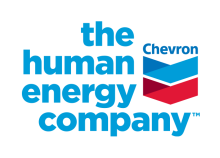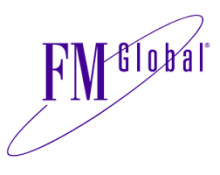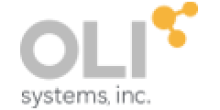37th Center for Chemical Process Safety (CCPS) International Conference
The Center for Chemical Process Safety (CCPS) International Conference is one of five parallel sessions that comprise the Global Congress on Process Safety (GCPS). The CCPS Conference promotes process safety by identifying emerging process safety issues and advancing leading process safety management practices. It is dedicated to managing process safety systematically, locally, regionally and internationally.
18th GCPS Conference Program - Draft
Encouraged topics for this conference include, but are not limited to:
-
Featured CCPS Projects: Emerging Topics, Tools, and References
-
Proactive Process Safety and Prevention of Catastrophic Incidents
-
The Many Hats of a Process Safety Professional - A Career Perspective
-
Fostering Process Safety Culture and Compliance with Standards
-
Age Before Beauty: Identifying and Managing Risk of Aging Facilities
-
Putting Together the Puzzles of Hazard Identification and Risk Analysis
-
The Next Frontier of Process Safety: Technology Advancements and Threats in the 21st Century
CCPS Chair and Vice Chair:
-
Sean Dee & James Martin, CCPS_chair@aiche.org
Session Topic Descriptions:
Featured CCPS Projects: Emerging Topics, Tools, and References
Each year, teams of volunteers help develop and execute dozens of projects sponsored by the CCPS. This session seeks submission that either provides updates from ongoing CCPS projects to share with the process safety community or lessons from the application of the resources (such as publications or toolkits) that are delivered from the CCPS project teams. A review of ongoing projects, and those looking for volunteers, can be found at https://www.aiche.org/ccps/projects.
Proactive Process Safety and Prevention of Catastrophic Incidents
Being proactive in process safety can help facilities identify underlying problems before a catastrophic incident occurs. This session seeks submissions that discuss activities that help companies be more proactive with their approaches to process safety. Examples of topics include near-miss investigation, leading and lagging process safety metrics, or management of change.
Good, Better, Best: Administrative and Engineering Controls
In the hierarchy of controls, administrative and engineering controls lie between more effective options (such as elimination or substitution) and less effective options (such as PPE). Commonly, a facility faces an evaluation of engineering and/or administrative controls for implementation in a process. This session seeks submissions that focus on the evaluation of these options and approaches for the implementation of engineering or administrative controls.
The Many Hats of a Process Safety Professional - A Career Perspective
Process Safety Professionals often find themselves in a variety of different roles related to managing and maintaining safety for an organization. This session seeks submissions that highlight the career perspective of the various responsibilities that process safety professionals fulfill in their job capacity. Papers from both new, and experienced professionals are welcome.
Is There an Elephant in the Room? Diversity, Equality, and Inclusivity in the Process Safety Industry
Society recognizes the importance of diversity, equality, and inclusion in a variety of industries. Process safety programs have elements that emphasize the benefits of diversity, such as the value of bringing together various departments to perform a process hazard analysis. Companies are often faced with challenges associated with cultural considerations for diversity programs and variations in regulations geographically as well. Do these elements go far enough, or are there further benefits associated with a wholistic approach to diversity and inclusion in the chemical industry? This session seeks submissions that discuss how diversity, equality, and inclusion programs and initiatives have provided further benefits to process safety programs.
Leadership Forum: The Role of Training and Competency in Developing the Next Generation of Process Safety Leaders
Many leadership quotes point to the development of future leaders as a hallmark of a great leader. This development is often fueled by training to develop process safety competency in staff as they grow into their roles as leaders. This session seeks submissions that discuss the role of leadership in a process safety program, with a focus on programs or instances where developing leadership of others (less experienced employees, other departments such as operations, maintenance, of engineering, etc.) is emphasized. Submissions that address translating training into process safety competency are also encouraged.
Fostering Process Safety Culture and Compliance with Standards
Driving commitment to process safety can be emphasized through programs that focus on process safety culture and compliance with standards. These approaches (culture and compliance) often interplay with each other, and leave some asking “Is a compliance culture enough?” This session seeks submissions that discuss handling challenges in fostering exceptional process safety culture and maintaining compliance with standards.
Age Before Beauty: Identifying and Managing Risk of Aging Facilities
The risk profile of a facility changes as the equipment and infrastructure of the facility age. This session seeks submissions that address managing the risk of aging facilities, including monitoring equipment conditions, damage mechanisms that relate to aging, procedures, and programs to manage risk, and retrofit and replacement evaluations.
Putting Together the Puzzles of Hazard Identification and Risk AnalysisUnderstanding hazards and risk is one of the key aspects within a risk-based process safety framework. Management of process knowledge, and hazard identification and risk analysis (HIRA) are two of the primary activities utilized to accomplish this goal. This session seeks submissions that address documenting and maintaining process knowledge, as well as identifying the hazards and analyzing the risks associated with processes.
The Next Frontier of Process Safety: Technology Advancements and Threats in the 21st Century
The development of technology provides both opportunities and new questions regarding the safety of automated processes. As the world continues to grow more connected, the chemical industry looks to leverage emerging technology. However, these advancements also present vulnerabilities and new hazards associated with the plants of the future. This session seeks submissions that address these new technologies and the challenges they introduce. Potential topics include cyber security, Industry 4.0, Big Data, Internet of Things, Artificial Intelligence, and Machine Learning.
Effective Process Safety Management Programs
Effective process safety programs need to have a foundation of a strong safety culture, committed leadership, properly designed and integrated management systems, and operational discipline in following program requirements. Topical papers about developing needs, best practices, new or improved approaches or methodologies, interesting applications, key learnings or trends, or specific examples of successes or actions in progress related to implementing and sustaining effective process safety programs are encouraged.
GCPS Joint Session: Case Histories
Reviews of process safety incidents provide valuable learning opportunities. This session invites papers to help understand the causes and lessons learned from incidents in the industry with an emphasis on events that have helped define and develop the process safety field over the years.















